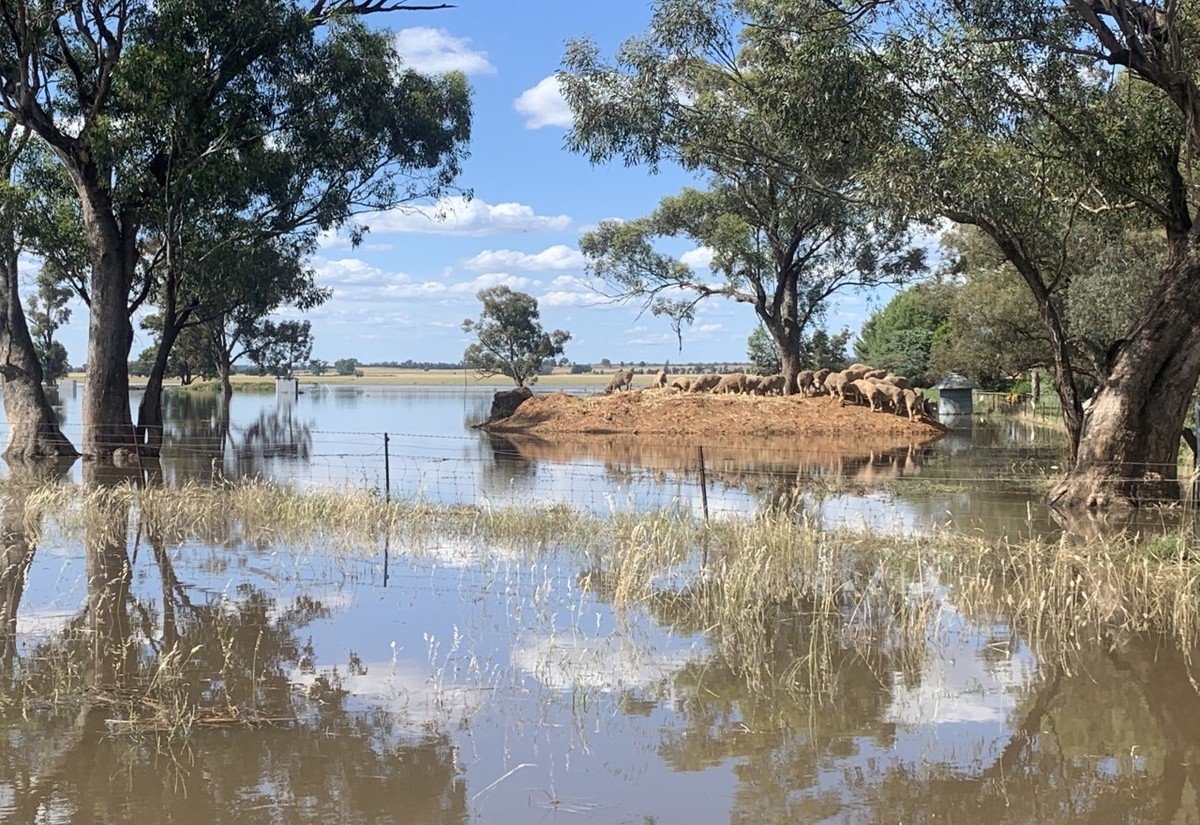Livestock disease risk rises with floodwater
Laura Williams
10 December 2021, 5:54 AM
 Flooded paddocks across the central west have left stock stranded on dry-ground 'islands'. Image supplied.
Flooded paddocks across the central west have left stock stranded on dry-ground 'islands'. Image supplied.Regional landholders have been urged to stay on high alert for increased animal disease risk that have risen with the ongoing flood levels.
With the previous weeks of rural flooding many more ahead of us before the flood waters recede, experts say livestock will be especially susceptible to a range of health issues and diseases due to prolonged exposure.
Central West Local Land Services (LLS) Veterinarian Dr Jillian Kelly said that regular inspection is key to avoiding diseases such as lameness, flystrike and worms.
“Animals that have been standing in water for more than a day or two are susceptible to severe feet issues that will require intervention,” Dr Kelly said.
According to Dr Kelly, it is vital to move stock to dry ground where possible to prevent serious illness.
“The blowfly risk to sheep across most of NSW is considered extreme at the moment. Sheep need to be checked daily for strike,” Dr Kelly said.
“Barbers Pole Worm also loves these conditions, so an effective drench given now is advised, especially if flood waters mean that your ability to yard sheep regularly is impacted,” she said.
The pests are continuing to enter the region following the recent rain events, with biting insects using livestock as their new food supply. The resulting skin irritation is causing stock to huddle on bare dry ground, reduce grazing and lose weight, despite the plentiful green grass that is shooting up around the region.
Some locals have reported stock gathering in water seeking relief from the irritation.
Dr Kelly instructed that slashing areas for the animals to camp and get away from the insects can help, as well as using backline products and insecticidal ear tags for cattle.
While the mosquitoes have been evident by the constant hum in the air, Central West LLS are also monitoring for the arrival of the Buffalo Fly, which made an appearance in the district following the 2010-2011 flood event.
A relief for producers and vets is the absence of Bovine Ephemeral Fever (BEF), although producers are urged to be vigilant for the insect-borne disease which Dr Kelly believes may arrive in the coming weeks.
“There is a vaccine available to prevent BEF, which is available via private veterinary clinics, however its availability is in short supply at the moment,” Dr Kelly said.
Signs of BEF are stock that have a fever, stand off on their own, don’t graze, drool, are reluctant to move and prefer to lay down.
“Typically, affected animals recover in a few days, however some animals can take longer to get up and, in some severe cases, can die,” she said.
As well as being alert, LLS staff are encouraging landholders to report flood-related damage through the Natural Disaster Damage Survey, including damage to crops, pastures, fencing and farm infrastructure.
Producers are advised to talk to their district vet about the best treatment for the myriad of diseases that NSW livestock are facing currently.
For urgent advice with evacuation or assistance with emergency care of livestock and companion animals, call Local Land Services on 1300 795 299.